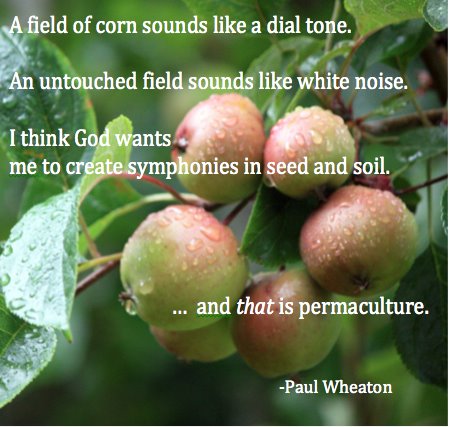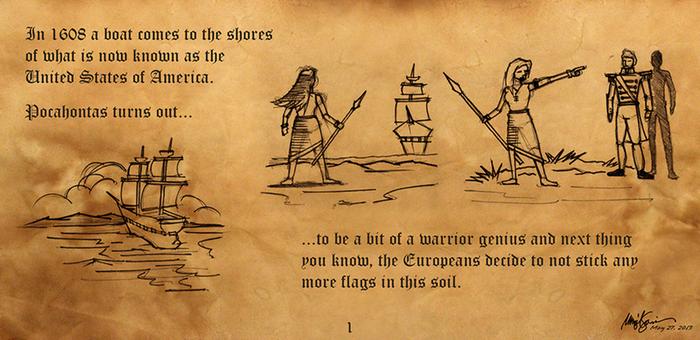
 3
3




 3
3








Living in Anjou , France,
For the many not for the few
http://www.permies.com/t/80/31583/projects/Permie-Pennies-France#330873
 6
6




Idle dreamer
 14
14






 11
11




List of Bryant RedHawk's Epic Soil Series Threads We love visitors, that's why we live in a secluded cabin deep in the woods. "Buzzard's Roost (Asnikiye Heca) Farm." Promoting permaculture to save our planet.
 2
2




“The most important decision we make is whether we believe we live in a friendly or hostile universe.”― Albert Einstein
 1
1








 1
1




 1
1




Idle dreamer
 1
1




Gilbert Fritz wrote:
So I believe that we do have a niche where we can actually make things better just by getting our living, just as beavers and wolves do.
Idle dreamer




“The most important decision we make is whether we believe we live in a friendly or hostile universe.”― Albert Einstein








"People may doubt what you say, but they will believe what you do."
 1
1




Idle dreamer




Check out Redhawk's soil series: https://permies.com/wiki/redhawk-soil












 5
5




List of Bryant RedHawk's Epic Soil Series Threads We love visitors, that's why we live in a secluded cabin deep in the woods. "Buzzard's Roost (Asnikiye Heca) Farm." Promoting permaculture to save our planet.
 1
1




Idle dreamer
 2
2




Bryant RedHawk wrote:
I believe that if you check, the authors that hold up that idea, you will find they are of European decent and looking for a scapegoat as usual.
Idle dreamer




 1
1




Idle dreamer












Idle dreamer
 1
1




“The most important decision we make is whether we believe we live in a friendly or hostile universe.”― Albert Einstein
 1
1




Check out Redhawk's soil series: https://permies.com/wiki/redhawk-soil












 2
2




List of Bryant RedHawk's Epic Soil Series Threads We love visitors, that's why we live in a secluded cabin deep in the woods. "Buzzard's Roost (Asnikiye Heca) Farm." Promoting permaculture to save our planet.




Bryant RedHawk wrote:
I do not think the proposal of setting aside half the world would work. The reality of that idea lacks the acknowledgement of the fact that 2/3 of this planet is water covered, so exactly where is this half of the world they propose to set aside?
I think it more feasible to set portions of each land mass aside and free from human interference. This way humans can go there to learn but they can't live there long term, which seems to be how humans really screw things up.
Idle dreamer
 1
1








Check out Redhawk's soil series: https://permies.com/wiki/redhawk-soil




Idle dreamer












 1
1




List of Bryant RedHawk's Epic Soil Series Threads We love visitors, that's why we live in a secluded cabin deep in the woods. "Buzzard's Roost (Asnikiye Heca) Farm." Promoting permaculture to save our planet.
 2
2




“The most important decision we make is whether we believe we live in a friendly or hostile universe.”― Albert Einstein
 1
1




Bryant RedHawk wrote:
Wouldn't your proposal first require that all humans got along well together?
Bryant RedHawk wrote:Of course we warred, we fought over territory but once the fight was over, there were still many of each nation left standing, and territory would end up shared. Many wars were about counting coupe, not killing.
Idle dreamer




John Weiland wrote:
Perhaps a wild thought much contested and with only oblique and rudimentary scientific support (even if well supported by anecdote), but we will project (psychologically speaking) the unconscious of our earliest days onto and into our adult human and non-human relationships. Part of the reason that the American Humane Association is allied with child abuse prevention efforts is that they see the parallels between those, young and old, who would maltreat animals as themselves having had a past history of maltreatment at the hands of those charged with their care. This possibly gets more to the heart of Alder B's question of "Why would the planet spawn such an aggressive, ambitious species?". So it may be one place to start, that if the next generation is held as sacred and imbued with a sense that their world is sacred, lasting change will take place, even if more structured measures will be needed in the interim.
Idle dreamer
 1
1




Check out Redhawk's soil series: https://permies.com/wiki/redhawk-soil




Please read the Godesky essay: http://kennysideshow.blogspot.com/2008/05/agriculture-or-permaculture-why-words.html I think it will clarify things.
I would think that the best gauge for ecosystem health would be to inventory all the life in an area, prior to human intervention (impossible to do now-a-days) then make sure there was no change caused by human intervention.




I gave this some thought since this morning. When we place an animal element we look at needs, products and intrinsic characteristics. If we would do the same for humans we might get a permaculture answer. I'm not going into 'needs' and 'products' now, but we can describe characteristics of humans. We think, plan and fantasize. We make tools. Most people are compassionate, we have an urge to protect what is weak, to see things grow and develop. So yes that makes us caretakers by definition. From a permaculture perspective we should be on earth to make it better.





|
passwords must contain 14 characters, a number, punctuation, a small bird, a bit of cheese and a tiny ad.
Learn Permaculture through a little hard work
https://wheaton-labs.com/bootcamp
|



